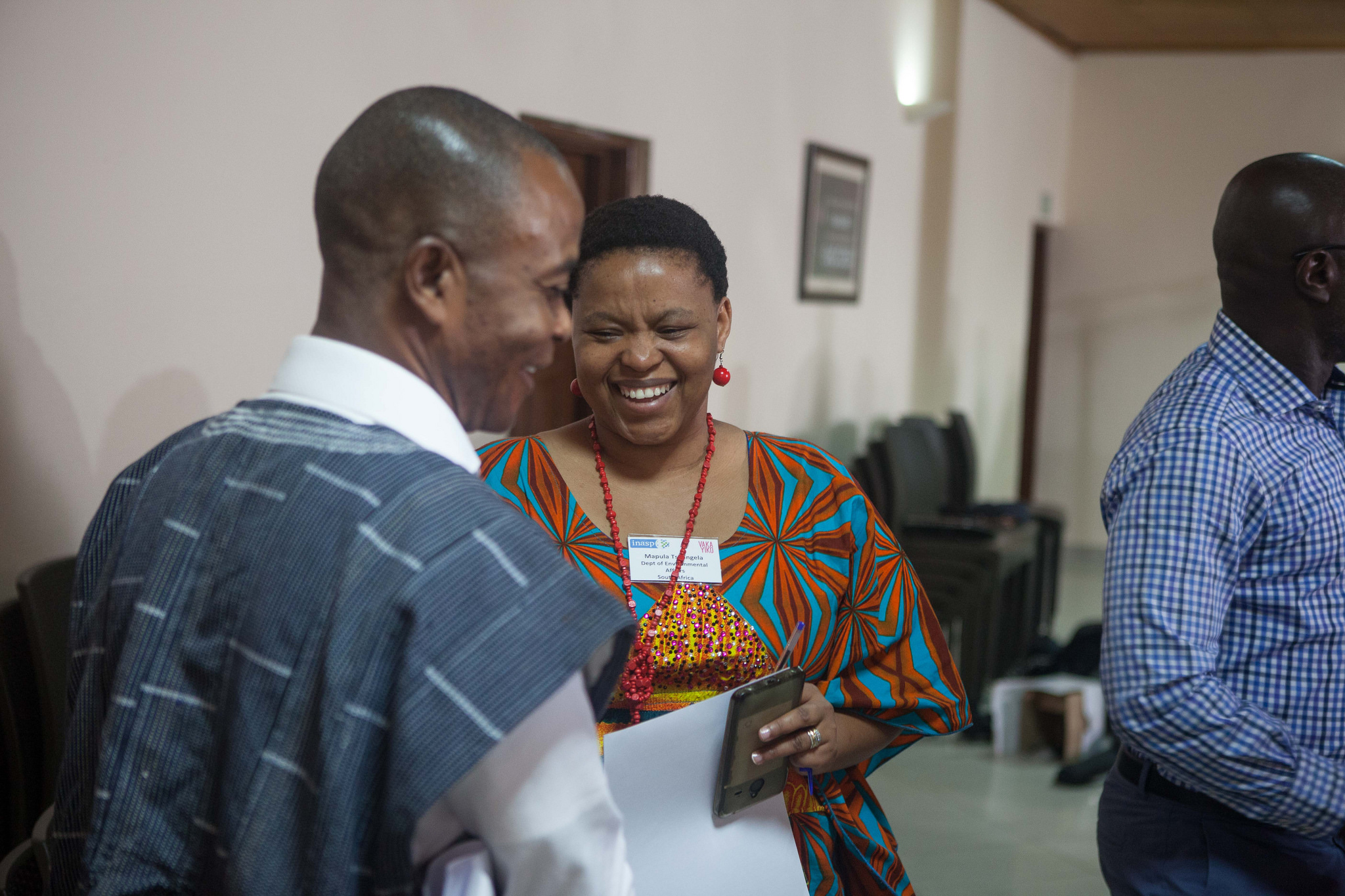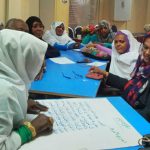
Five free evidence networks to follow
Networking at VakaYiko Symposium
—————————————————————————————-
– Blog post by Agnes Becker, EIPM communications support, INASP
Learning from international development colleagues who are also passionate about evidence use in policymaking inspires us and helps us feel connected. Networks are a great way of finding out who is doing what, when and where. Here are a few of our favourite free networks (in no particular order):
Africa Evidence Network
The Africa Evidence Network is a community of people who work in Africa and have an interest in evidence, its production and use in decision-making. The Network includes researchers, practitioners and policy-makers from universities, civil society and governments. The aim of the Network is to link people and activities across various initiatives, organizations and fields working to produce and use better evidence in Africa. The network does this through online communications and conferences.
Membership: free
Twitter: @Africa_evidence
Research to Action
Research to Action is a website catering for the strategic and practical needs of people trying to improve the uptake of development research. This is more of a resource bank than a network but you can request to post resources and blogs, comment on posts and get regular updates via Twitter.
Browse and submit resources for free
Twitter: @Research2Action
Alliance for Useful Evidence
The Alliance is a UK-wide network that promotes the use of high quality evidence to inform decisions on strategy, policy and practice in the UK and internationally. The Alliance does this through advocacy, publishing research, sharing ideas and advice, and holding events and training. Their website hosts a blog and free publications database.
Membership: free
www.alliance4usefulevidence.org
Twitter: @a4uevidence
Evidence Based Policy in Development Network
The evidence-based policy in development network is a community of development professionals interested in the intersection between evidence, policy and practice. The network aims to establish a worldwide community of practice for think tanks, policy research institutes and similar organisations working in international development, to promote more evidence-based, pro-poor development policies. Join discussions and access resources by becoming a member for free.
Membership: free
International Network for Government Science Advice
International Network for Government Science Advice provides a forum for policy makers, practitioners, academies, and academics to share experience, build capacity and develop theoretical and practical approaches to the use of scientific evidence in informing policy at all levels of government. The network does this by sharing information online, holding workshops and working groups, and producing articles and discussion papers.
Membership is free
Twitter: @INGSciAdvice
Which evidence networks are you part of? Let us know in the comments.

 Previous Post
Previous Post



Thanks for this useful collection. I’d also like to draw to your attention the Integration and Implementation Insights blog. We aim to share concepts and methods for dealing with complex real-world problems – including how to get evidence implemented into policy and practice change, how to develop good interdisciplinary evidence and how to deal with what we don’t know to reduce adverse unintended consequences. We are a year old and have published more than 100 blog posts with authors from 20 countries. Viewers have come from 165 countries, with 2,000-3,000 viewers per month. If you have a relevant concept or method to share or a good case study, we’d love to hear from you! (Posting website information does not seem to be allowed, but you can find us via Google – I2Insights blog)
Thanks Gabriele, It’s great to hear about the Integration and Implementation Insights blog. We have followed you on twitter and signed up to recieve blog updates too. We would be delighted to share relevant content with you – we have a few case studies and a paper on our methods coming up in a couple of months that may be of interest. Would it be better to send content to you or your colleague Peter Deane? Thanks again for getting in touch. Do sign up to our newsletter if you have not already: http://inasp.us2.list-manage1.com/subscribe?u=f867dd6357979fd251230ddb7&id=c0e747b098